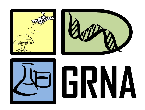Banca de DEFESA: ELIMARY ELANNE SANTOS DA SILVA
Uma banca de DEFESA de MESTRADO foi cadastrada pelo programa.STUDENT : ELIMARY ELANNE SANTOS DA SILVA
DATE: 31/08/2023
TIME: 09:00
LOCAL: Sala 432 - BMT2 - UFOPA/Campus Tapajós
TITLE:
The ethnoknowledge of riverside women about plants in the communities of Porto Novo and Cajutuba, Belterra-Pará.
KEY WORDS:
Extractivists. Ethnobotany. Traditional knowledge. Medicinal plants.
PAGES: 136
BIG AREA: Outra
AREA: Ciências Ambientais
SUMMARY:
The traditional knowledge of Amazonian riverside women regarding plants is extremely diverse, representing a rich collection of empirical wisdom passed down through generations. This knowledge is essential for their subsistence, being utilized in various aspects of daily life such as food, medicine, crafts, ritualistic practices, and construction. Ethnobotany is the scientific discipline dedicated to documenting and studying these traditional practices, with the aim of preserving and appreciating them. Based on this context, the present study aimed to investigate the ethnoknowledge of women regarding plants in the riverside communities of Porto Novo and Cajutuba, located in Belterra, Pará. The geographic coordinates of these communities are Latitude 02° 38' 11" south and Longitude 54° 56' 14" west. The research was carried out in five distinct stages, allowing for a comprehensive and in-depth approach to the topic. 1) Presentation of the research to community leaders, where they provided their Prior Informed Consent. 2) Semi-structured interviews with 20 women to gather ethnoknowledge data about plants. 3) Taxonomic identification of medicinal plants. 4) Calculation of ethnobotanical variables, relative citation frequency (RCF), and use value (UV). 5) Creation of an Ethnobotanical Atlas.6) Construction of medicinal Garden. In the research, women reported a total of 125 plant species, belonging to 52 botanical families, with Lamiaceae, Arecaceae, Solanaceae, Myrtaceae, Euphorbiaceae, and Fabaceae being the most representative. The most commonly used therapeutic preparations were: Tea (22.94%), baths (6.82%), and juice (3.1%). The respective medicinal species demonstrated the highest RCFs, with Lippia alba (0.8), Citrus sp. (0.75), Cymbopogon citratus (0.55), and Aloe vera (0.45) being the most important species for treating diseases in the communities. The UV identifies which species are most versatile and have various practical and cultural applications in the studied communities. The UV highlighted 1.1 for Citrus sp. (culinary), 1 for Lippia alba (medicinal), 0.05 for Alpinia serumbet (baths), 0.6 for Ruta graveolens (ritual), and 0.06 for Adenium obesum (ornamental). By documenting and understanding the cultural connection between riverside women and the plants around them, this research aims to enrich scientific knowledge about regional biodiversity and contribute to the respect and conservation of these ancestral practices that hold significant importance for the identity and livelihood of these communities.
COMMITTEE MEMBERS:
Externa ao Programa - 1964260 - LUCYBETH CAMARGO DE ARRUDA - nullPresidente - 1178274 - PATRICIA CHAVES DE OLIVEIRA
Externo ao Programa - 1776327 - THIAGO ALMEIDA VIEIRA - nullExterna ao Programa - 1837022 - ZILDA JOAQUINA COHEN GAMA DOS SANTOS - null




